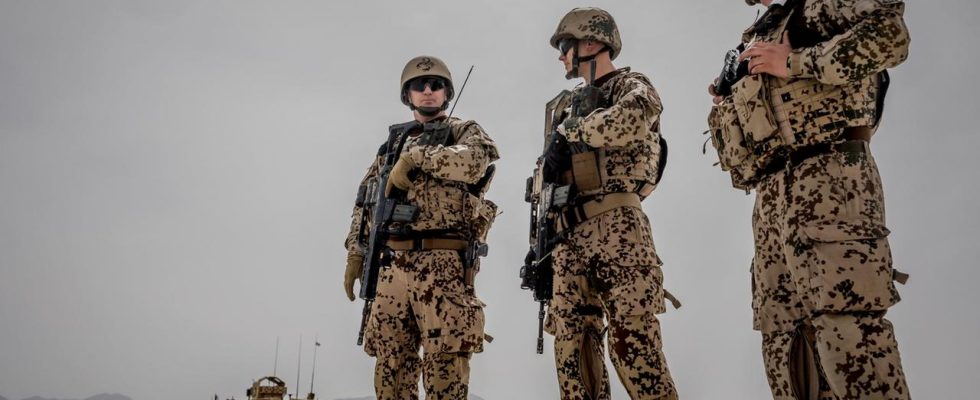exclusive
The Bundestag Study Commission is today presenting its interim report on the Bundeswehr’s deployment in Afghanistan. The paper that… NDR present, provides a damning testimony.
It is a ruthless assessment of Germany’s almost 20-year commitment to the Hindu Kush. This quickly becomes clear when reading the report, which totals more than 330 pages. The “largest, most expensive, most sacrifice-laden crisis operation by the – especially Western – community of states” ended “with a strategic failure,” says the paper with a view to the military mission in Afghanistan.
“Not critical Inventory”
The Bundestag study commission is just as clear as in the overall assessment when listing the individual errors and omissions:
“There has not been a sufficient ongoing, self-critical inventory of the very ambitious goals,” criticizes the committee, thereby taking aim at all the federal governments involved in the operation between 2001 and 2021.
It is also criticized that the responsible ministries – foreign, interior, defense and development – have not coordinated sufficiently. The report even contains the term “departmental egoism” in black and white.
In an interview with the NDR infoIn the “Killed In Action” podcast, commission chairman Michael Müller (SPD) also confirms that the German “networked approach” did not work.
Too few emergency services and police officers
From the Bundestag Commission’s point of view, the resources provided by the Germans – for both civil and military purposes – were not sufficient: “Equipment and capabilities of the Bundeswehr,” it says in the paper sent to the NDR available, “were in some cases not adapted dynamically enough to the threat situation in Afghanistan.”
The parliamentarians rate human resources, in civilian emergency services and in the police, as “inadequate compared to the goal of state building.”
Germany volunteered to help set up the Afghan police force, but was criticized early on for the small number of officers sent by the Interior Ministry. It was simply “ridiculous,” says an ex-diplomat.
Taliban influence underestimated
But that’s not all: When distributing funds, the “receptive capacity and capacities of the Afghan partners” were overestimated; However, the increasing influence of the Taliban is underestimated. Efforts were made to find a political solution to the conflict far too late and “insufficiently consistently”.
Today the Taliban, who were supposedly defeated in 2001, rule Afghanistan again. Germany has “strategically failed together with its international partners,” according to the bitter assessment of the study commission.
But: Germany as a “reliable ally”
However, the commission also included small islands of light in its 330-page report, which was dominated by shadows: Germany “showed itself to be a reliable ally, participated as one of the largest troop contributors throughout the entire period of operation and assumed leadership responsibility,” praised the committee. The Study Commission plans to present its final report with concrete recommendations in the spring of next year.
Kai Küstner, NDR, tagesschau, February 18, 2024 6:52 p.m

